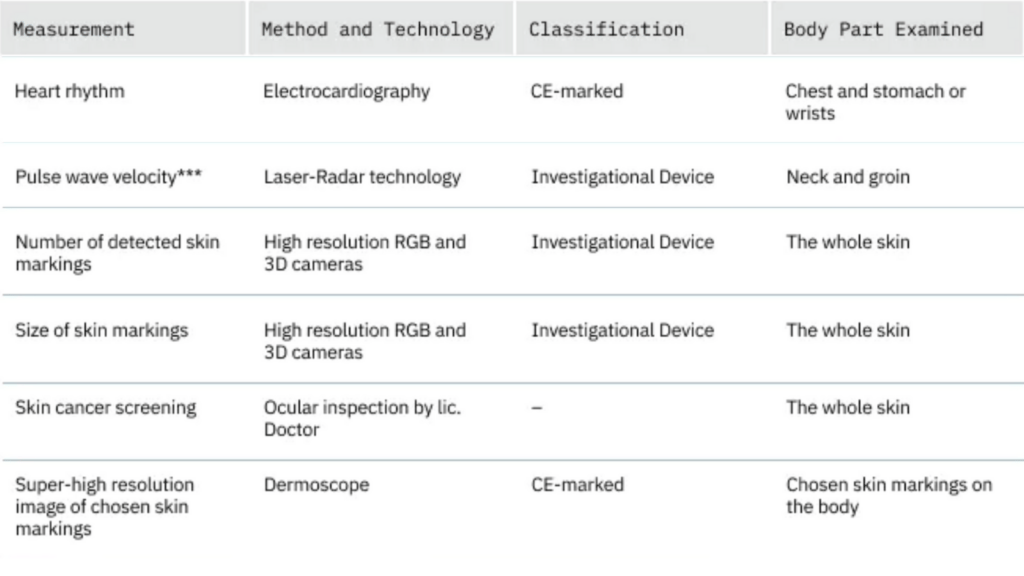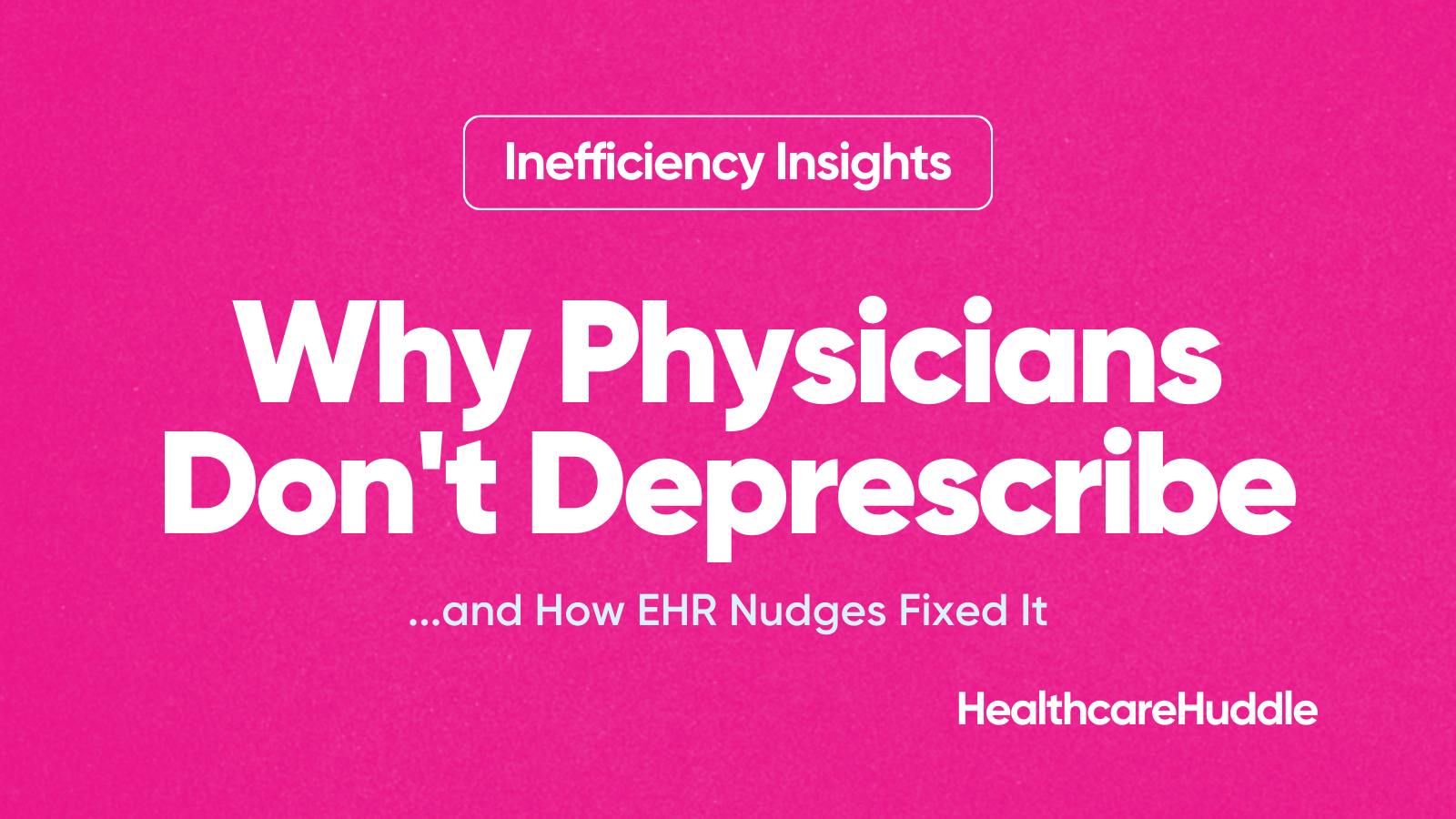Health tech company Neko Health raised ~$66 million in a Series A round earlier this month to help build out its preventive healthcare solutions—which include whole-body scanning services.
It seems more and more people (at least on my Twitter and LinkedIn feeds) have been chatting about whole-body scans as a form of preventive healthcare. Given risks and benefits, should whole-body imaging scans even be a “thing”?
In this article, I’ll summarize what Neko Health does, highlight the whole-body scans market, and tell you why whole-body imaging scans with MRI and CT are nonsense—but why Neko is different.
The Deets
Neko Health, co-founded by Spotify founder Daniel Ek and Hjalmar Nilsonne, officially launched earlier this year to provide non-invasive body scanning services as a form of preventive health. The hope is that these extensive scans will catch health issues early on to prevent downstream health problems and costs.
As of now, these scans focus on cardiovascular and dermatological prevention data points. You can find the whole list here, but I highlighted some below:

Here’s how the scan works, according to their website (and I’m directly copying and pasting):
A full body scan takes 10 minutes and is always followed by an in-doctor consultation.
More than 70 sensors collect 50 million data points in minutes. Neko’s Body Scan can for instance detect skin changes as small as 0.2 millimeters (part of clinical study).
The patient gets access to a summary of their health data in an app where they can also follow their health trend.
A scan costs $250.
The Neko Body Scan is only available in Stockholm. Apparently, all the available slots sold out within two hours of opening—now 10,000 people are on the waiting list.
“Whole-body Scan” Market
The niche preventive health market, which I’ll dub the “Whole-body Scan” market, is small, but nascent. This market consists of companies offering whole-body imaging scans using CT, MRI, or other non-radiological imaging (as seen with Neko). I’ve highlighted some companies below:

Companies like Prenuvo and Ezra offer whole body imaging (MRI and CT) to screen for cancer, targeting people with unexplained pain, genetic predispositions, or who want “overall piece of mind.” The business strategy focuses on targeting patients (primary revenue source) and physicians (primary referral source). As you would expect, insurance does not cover these imaging exams given no evidence to support their cost-effectiveness. Below are the prices of Prenuvo’s scans as of December 2022. It’s clear those in higher income brackets are the target market.

Note: I wrote a deep dive on Prenuvo and Ezra late last year—read it here.
Dash’s Dissection
Overall, I’m skeptical about whole-body imaging scans as a form of prevention. As I said in my previous article on whole-body imaging scans: “There is as much evidence supporting the use of whole-body imaging for cancer screening in healthy individuals as there is evidence supporting that the 2020 election was rigged.”
The fact is, there’s insufficient evidence promoting the cost-effectiveness of whole-body imaging scans as a screening tool for cancer in asymptomatic individuals with no genetic predisposition. For example, the American College of Preventive Medicine recommends against using whole-body scans for early tumor detection in asymptomatic individuals. There’s no evidence suggesting whole-body scans in asymptomatic individuals will improve survival or the likelihood of finding tumors, especially since the tumor detection rate is less than 2% in this population.
Additionally, one review article found that abnormal whole-body scan findings are expected in about 95% of individuals. Thirty percent of these individuals would require further investigations, but less than 2% of these findings would actually be reported as suspicious for malignant cancers.
The high rates of incidental findings and false positives increase anxiety in patients and may warrant more invasive (expensive) testing only to yield negative test results.
While the above-mentioned details are a concern for companies like Prenuvo and Ezra that offer MRI and CT scans, they’re less of a concern for Neko. To be honest, when I first found out about Neko’s launch and subsequent fundraising, I thought to myself, great, another company trying to do whole-body imaging scans.
However, Neko is unique. It doesn’t seem to be joining the likes of Prenuvo and Ezra in offering MRI and CT scans. Rather, they’re offering preventive care labs and screening tools that would otherwise be offered in the primary care setting. These include lipid panels, CBC, skin cancer screenings, ECG, TTE, HbA1c, and more. While some measures I don’t agree with like CRP, which is very non-specific, for the most part, I’m on board with.
So if Neko is basically providing services the primary care offers, why not just turn to primary care?
I’m not sure.
Perhaps the customer experience is worlds better at Neko than a primary care office, and if you seldom engage in care and just want to be screened now and then for cardiovascular or dermatological illnesses, Neko may be a more cost-effective alternative. Now, I only have the U.S. to compare prices, but I can assure you that for all the Neko offers for $250 would be significantly more expensive at the primary care office in the U.S.
Neko’s business model, from what I can read, gives me “direct primary care” vibes where patients pay their practice directly—no insurance. Patients, therefore, know from the get-go how much they’re paying and what they’ll get in return. This direct primary care model (which I’ll cover at a later time), is becoming an attractive model in the U.S., given rising out-of-pocket healthcare costs.
In summary, while whole-body imaging scans as a form of cancer prevention raise skepticism due to insufficient evidence and high rates of false positives, Neko stands apart by offering preventive care labs and screenings akin to primary care services. With a potentially more cost-effective and transparent business model, Neko’s approach may appeal to those seeking occasional screenings without the complexities of traditional healthcare systems, especially in the U.S. where out-of-pocket healthcare costs are on the rise (TBD if Neko expands to the U.S.).







